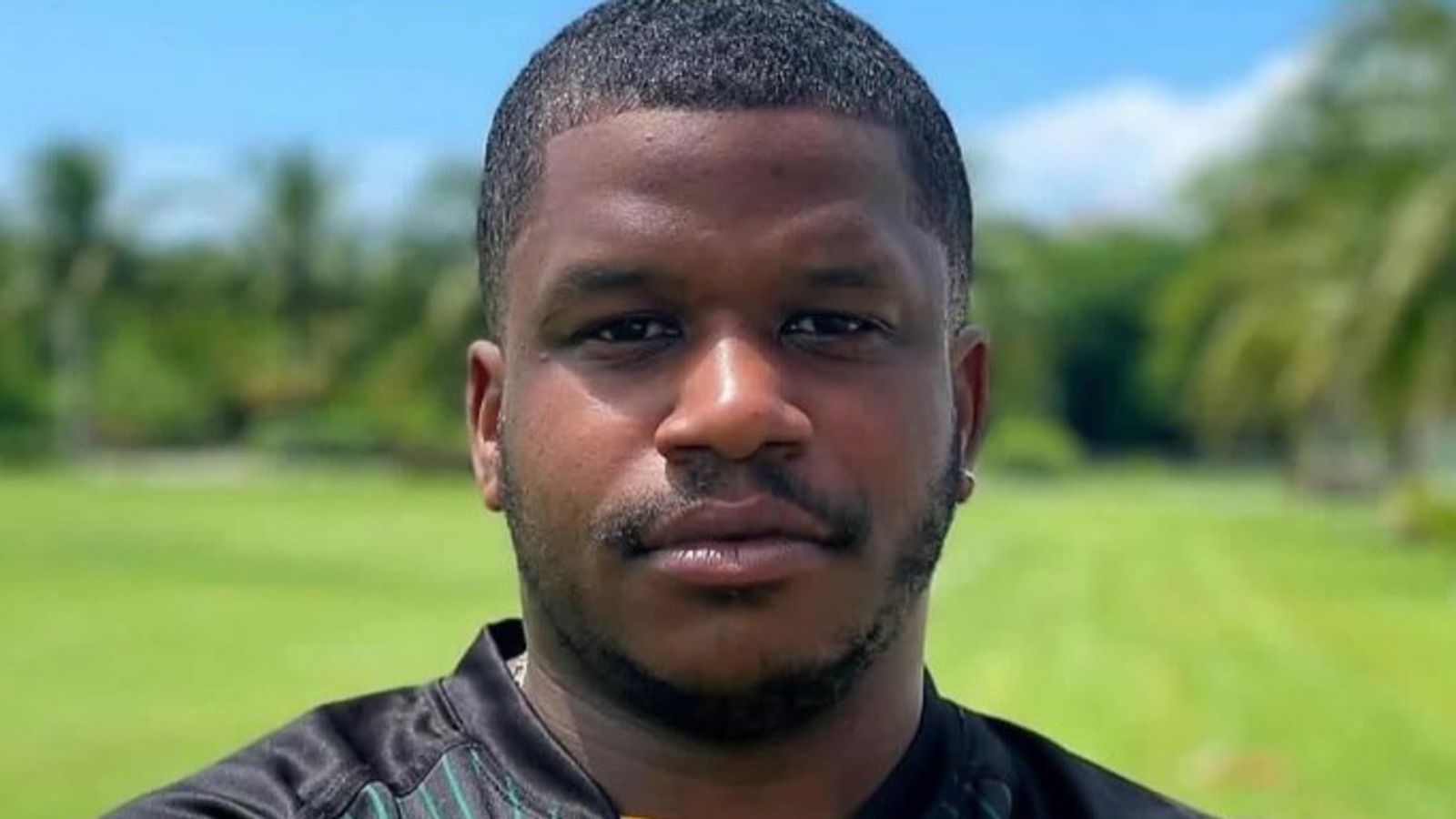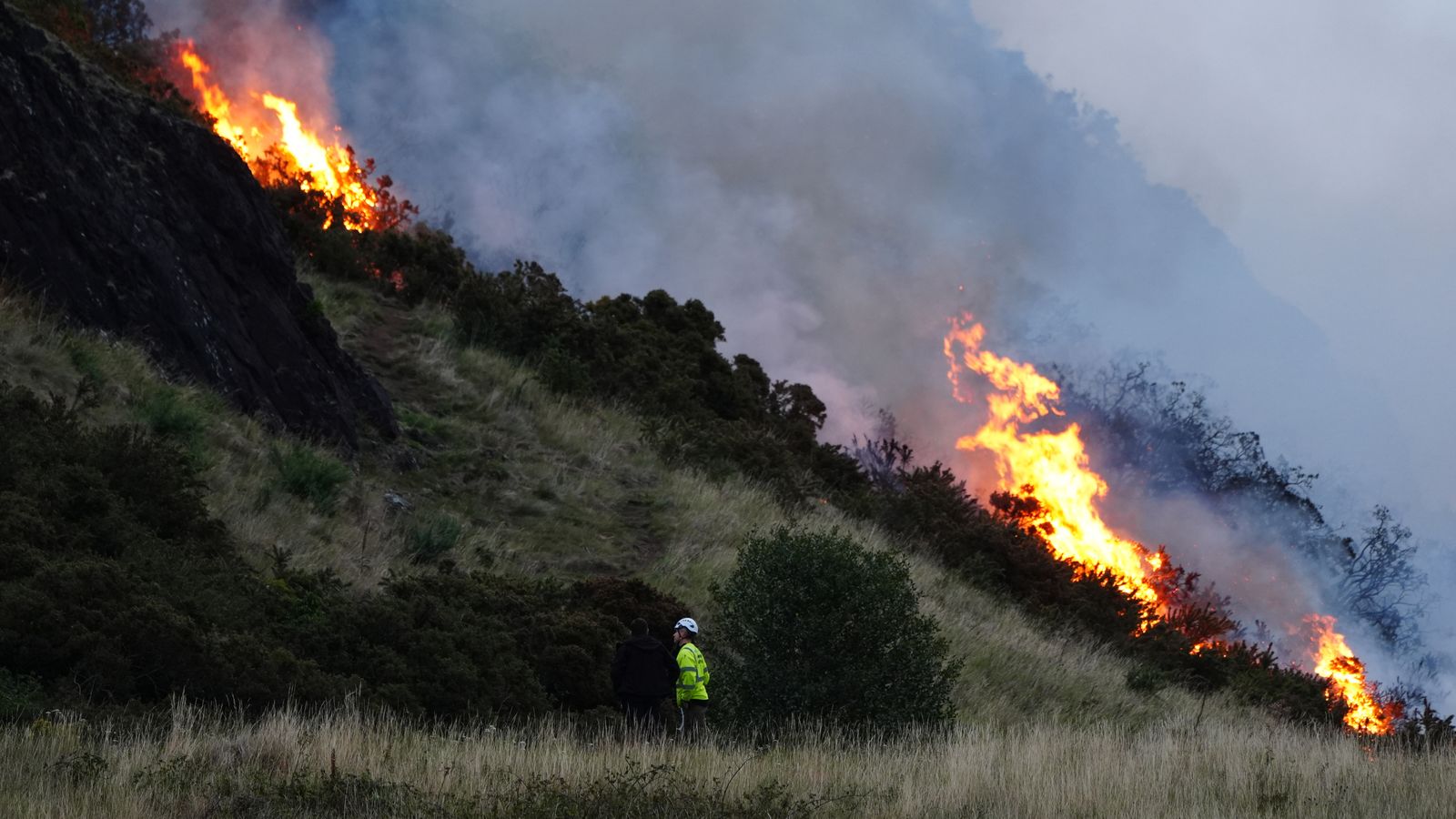The two forces at work on Biden-Netanyahu phone call
US President Joe Biden and Israel’s Prime Minister Benjamin Netanyahu have held a much-anticipated 30-minute phone call - believed to be their first contact since August - which included discussions on Israel’s intended retaliation to Iran’s missile strike last week.

The White House described the dialogue as "direct" and "productive", and said Biden and Netanyahu had agreed to stay in "close contact" in coming days. Vice President Kamala Harris also joined the call.
Speaking shortly afterwards, Israel's Defence Minister Yoav Gallant said its attack against Iran would be "deadly, precise and above all surprising".
Two forces are at work. One is Joe Biden’s reluctance to see the US dragged into a war with Iran that it believes would be unnecessary and dangerous.
The other is a strong sense among some in Israel that they have an opportunity to deal a body blow to Iran - their mortal enemy.
Israel’s offensive against Hezbollah has energised Israelis who were desperate to break out of the grinding war of attrition on their border with Lebanon.
Lebanon, for them, felt like success and progress, a stark contrast to the position in Gaza.
Despite Israel’s onslaught on Gaza that has killed at least 42,000 people, most of them civilians, Prime Minister Benjamin Netanyahu has not been able to deliver his two war aims – the destruction of Hamas and the recovery of the hostages.
Hamas is still fighting, and still holds around 100 hostages, many of whom might be dead.
The damage done to Israel’s enemies, Hezbollah in Lebanon and Hamas in Gaza, has produced in some Israelis an urgent conviction to go further and mount a direct assault on Iran.
For them, a devastating air attack on Iran is a seductive prospect.
Top of the target list for many Israelis are the heavily fortified sites, some driven deep into mountains where Iran houses nuclear facilities that Israel and others fear could be used to make a bomb.
Israel says it has carried out more than 1,100 air strikes since its ground invasion began in southern Lebanon on 30 September
President Biden has made clear the US opposes the idea.
The US believes Iran is not about to make a nuclear weapon. An attack could push them to construct one.
One of the most prominent voices in Israel pressing Netanyahu to ignore US wishes is former Prime Minister Naftali Bennett who says Israel must not hesitate to act against what he calls the Iranian octopus.
He told me that it was "the 11th hour".
Like the opposition politician and former general Benny Gantz, Bennett believes Iran is weaker than it has been for decades because of the damage done to Hezbollah and Hamas.
“Essentially Iran was defending itself with two arms, Hezbollah and Hamas. They were sort of its insurance policy against a strike," Bennett says.
"But now both of those arms are pretty much neutralised.”
Bennett sees the moment as a once in a generation opportunity to do real damage to Iran’s Islamic Regime.
He adds: “Here's the thing. The strategy with Iran - ultimately it's not going to happen tomorrow.
"We need to accelerate the demise of this regime. This is a regime that will fall.
“If Iran acquires a nuclear weapon, the likelihood that they'll use it in order to save the regime is high. And that means that they’re going to turn the whole Middle East into a nuclear nightmare.”
Middle East conflict: How will it end?
Bennett recalled two Israeli attacks on nuclear facilities he believes made the Middle East much safer - in Iraq in 1981 and Syria in 2007.
“People don't like it," Bennett says. "But we saved the world from [Bashar al-] Assad with nuclear weapons.
"We have the thankless job of taking out the nuclear facilities of the worst regimes in the world. Everyone likes to criticise us, but we're doing that job.
"And if they get that bomb, it's everyone's problem. It's not our problem. I want to see how Londoners will feel when there's an intercontinental ballistic missile with a nuclear bomb. We cannot allow that to happen.”
Former Israeli PM Naftali Bennett says Iran could turn the Middle East "into a nuclear nightmare".
Iran and Israel have been in direct conflict since April, after Israel assassinated leading Iranian generals with a big airstrike on the Iranian embassy in Syria.
Iran’s retaliation was a missile strike on Israel. The escalation has continued.
The latest came on Tuesday last week in response to Israel’s assault on Iran's ally Hezbollah in Lebanon, and the assassination of its leader Hassan Nasrallah.
Iran unleashed a huge ballistic missile attack, and Israel’s prime minister vowed to hit back.
President Biden was reluctant to restrain Israel in Gaza. And has "urged" Israel to minimise harm to civilians in Lebanon. But he has been adamant that Israel must not answer the Iranians with a strike on Iran’s nuclear facilities.
The US believes Iran is not about to make a nuclear weapon.
President Biden has said Israel must defend itself – but not by attacking Iranian nuclear sites – or its oil industry.
The US fears getting dragged into a war it doesn’t want. And there are concerns that if Iran can ride out an attack it will go for broke to produce a nuclear warhead for its missiles.
The next phases in this spiralling war depend on the extent of Israel’s retaliation – which may come any day now.
-BBC







